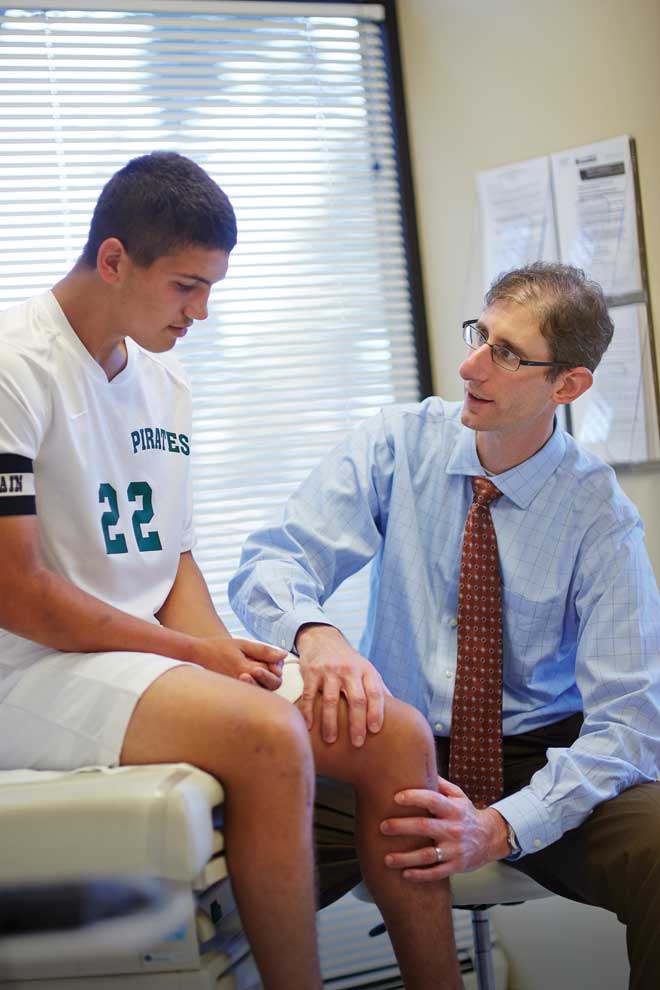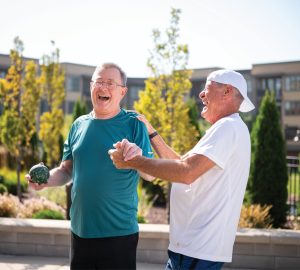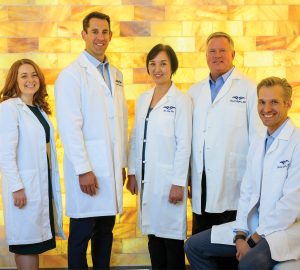High school athletes suffer an estimated 2 million sports-related injuries annually. The attitude of many hyper-competitive coaches used to be, Walk it off, get back in the game and tough it out. “We have a deeper understanding of sports injuries and their potential long-term repercussions these days,” says Dr. Scott Kaar, assistant professor of orthopaedic surgery at Saint Louis University School of Medicine and director of the sports medicine program at SLUCare, the physicians of Saint Louis University. “If not diagnosed and treated properly, some injuries can bench your youngster for months—and have serious health consequences for a lifetime.”
SLUCare’s sports medicine team is staffed by fellowship-trained sports medicine specialists from the departments of orthopaedic surgery and family medicine. “We treat athletes of all ages and skill levels, and from all sports, including the SLU Billikens, other area high schools and colleges, and local NCAA playoff events,” Kaar says. SLUCare experts from a wide range of disciplines work together, coordinating comprehensive patient care and rehabilitation. “As a research and teaching institution, we’re always learning more and updating our skills,” Kaar says. “We work with coaches and athletic trainers, too, ensuring the best recovery for our patients.”
Recent advances in knowledge and technology have created better diagnostic capabilities, imaging techniques and treatment options, Kaar explains. “Rotator cuff, knee and hip surgeries no longer require huge incisions that can damage muscles and connective tissue, leading to long recovery times,” he says. “Today’s minimally invasive surgical techniques, in which miniature fiber optic cameras and instruments are inserted through tiny incisions, result in significantly less postoperative pain, faster recovery times and fewer complications. Rehab and physical therapy techniques have improved, too.”
Just ask soccer player Michael Volansky of Perryville High School in southeast Missouri. Volansky, who’s now 18, plays center midfield for the Perryville Pirates. “Sophomore year when I was 16, I tore my right ACL and my lateral meniscus; junior year, I tore my left ACL,” he recalls. “Both times, I went to Dr. Kaar.” An avid athlete, Volansky worried he would never play again, especially after the second tear, which was more extensive than the first. “But Dr. Kaar was always there for me, answering every question and phone call. He had me up and around in no time. I feel great, and I’m playing better than ever. In fact, a couple of colleges are scouting me!”
Ten or 15 years ago, Volansky would have been confined to a cast for a month or more, and hobbling on crutches for at least six weeks, Kaar notes. “But we had him walking without crutches two weeks after surgery, and he was jogging within two months,” he says. “Five months later, he was back on the field. We’re dedicated to helping athletes of all ages and abilities stay healthy. Whether you’re a pro football player or your favorite activity is walking around the mall, we’ll get you off the sidelines and back into the game.”
Photo courtesy of SLUCare
Pictured: Michael Volansky and Dr. Scott Kaar
[Dr. Scott Kaar of SLUCare, the physicians of Saint Louis University, sees patients at Saint Louis University’s Anheuser-Busch Institute, SSM St. Mary’s Health Center, SSM Cardinal Glennon Children’s Medical Center, and SSM St. Joseph Health Center in St. Charles. For more information, call 314.977.4440 or visit slucare.edu/sports.]








